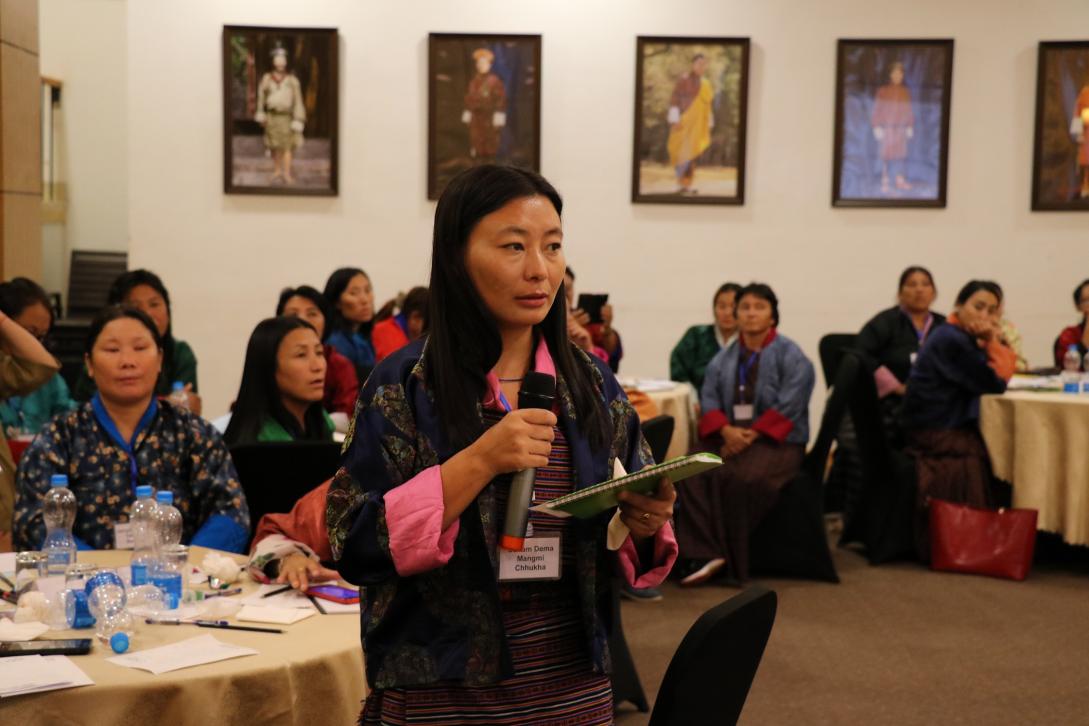Bhutan: Enhancing women representation in local government

The initiative is spearheaded by the local civil society organization Bhutan Network for Empowering Women (BNEW). The initiative seeks to answer the question of “what can we do to contribute towards enhancing the number of the women in local government elected offices?”
Three interconnected areas looked promising. The first was to weave connections among women in leadership roles, both formal and informal. This was with the conviction that it helps have some support system among women who have been in leadership positions or are thinking of standing for elections. The second was to reach out to already elected women representatives to see how they are faring and to further strengthen their capacities as local leaders. Topics included updates on relevant policies and regulations, understanding the overall planning and budgeting system in the country, conflict resolution, and gender and leadership. Relevant government resource people were roped in, which proved to be quite effective. The third was to raise general awareness on the importance of gender equality and women’s leadership. This linked to creating the foundation for mobilizing greater number of women into networks.
In numbers, a total of 146 elected women representatives from Dzongkhag Tshodus (district council) and Gewog Tshogdes (county council) were trained, and a total of 1061 women in 20 districts were directly reached through awareness programs. Two more activities are still under implementation.
The effect of the initiative on the next local government elections in 2021, as well as the long-term aspiration of more women in all levels of governance, remains to be seen. It is already positive to see a general interest among participating women to contest in the next elections.
Consistent motivation and dialogues with women who have “been there” are seen to make a difference in raising confidence levels at the personal and collective levels. The current women representatives believe their effectiveness as leaders have been enhanced through better understanding of policy and planning frameworks and skills needed in community leadership. Post awareness events show increased levels of awareness and understanding on the situation of women in politics today and the importance of changing the gender imbalance in leadership positions.





